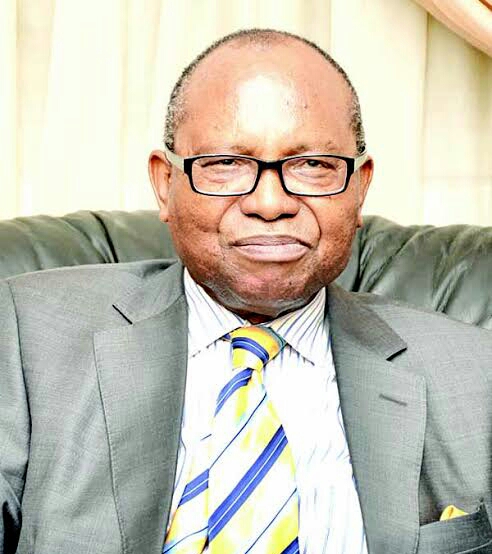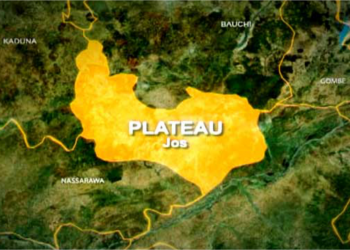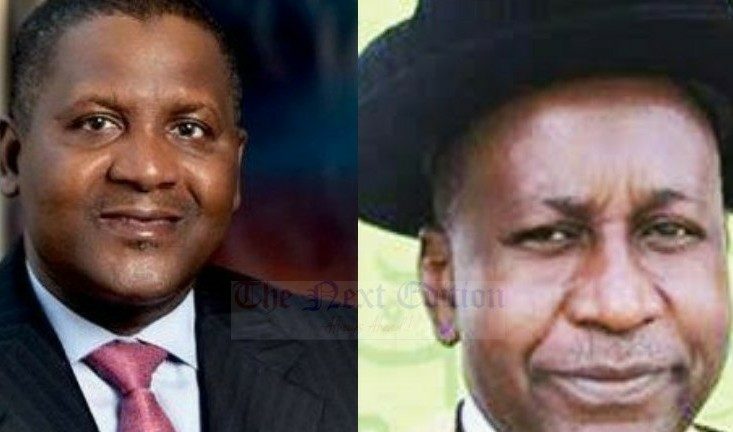Prof. Anya O. Anya, former Chief Executive Officer of the Nigeria Economic Summit Group (NESG), on Tuesday took a hard look at the Nigerian situation and came to the conclusion that the nation’s problems are beyond the capacities of the All Progressives Congress (APC), its Federal Government, and the Peoples Democratic Party (PDP).
Prof. Anya, keynote speaker at the Second TheNiche Annual Lecture in Lagos, maintained that the nation was enmeshed in multi-dimensional crises, which none of the existing 93 political parties could contend with.
Speaking to an audience that cut across business, politics, public service, the media and academia, Anya, who spoke on ‘Business and Accountable Governance in Nigeria: The Obligations of Leadership’, maintained that indeed, the nation’s crises cut across political, social, economic and moral spheres, stressing that Nigerians hate to be told the truth.
He said for Nigerians to begin to think of solutions to the nation’s problems, they must first realise that the nation’s problems were beyond the capacity of the political elite.
According to him, “It is beyond the capacity of APC as a party and government. It is beyond the capacity of the PDP, or indeed any of the multitudes of parties. We need to start again by instituting a new programme of national regeneration, restoration and renewal.
“We must mobilise our people beyond the political parties, beyond d the ethnicities and other diversities and beyond the limitations of our current situation. In this effort, we must commit to non-violence communication (NVC),” even as he stressed the need for wise elders, insightful statesmen, brilliant and industrious youths to put heads together and be prepared to rebuild the nation from its foundations.
Anya stated that the cacophony of voices on the political issue of restructuring was a measure of the level of dissonance in the political system, adding that “Nigeria is a diverse society that is multicultural, multi-ethnic and multi-religious.
“Not surprisingly, our pre-independence leaders chose a federal system of governance, which will over time build a united, but diverse nation of shared values of inclusiveness and national purpose. The military intervention destroyed this foundation and planted the seeds of division and centrifugal political forces.
“There cannot be a peaceful nation unless we return to the basis of federalism as the foundation of our national enterprise. The political challenge is how to operationalise Chapter 11 of our Constitution – the Fundamental Objectives and Directive Principles of State Policy. Unfortunately, it would appear that current political actors do not see and do not hear.”
On the economy, Anya stated that Nigeria was faced with two fundamental obstacles, explain ing that while the economy was growing at the miserly rate of 2%, the population was growing at 3.8%, nearly doubling the economic rate of growth.
He opined that there was a fundamental dissonance between the nation’s demography and its economy, adding that while the Debt Management Office (DMO) told Nigerians that the country’s debt as of 2015 was a little over N12 trillion, but it had come to over N25 trillion as of 2019.
“In other words, we have borrowed in three years more than we borrowed in 30 years previously. Much of the extra loans have been applied to recurrent expenditure given that most state governments could not even pay salaries.
“Indeed, it has been alleged that we spend 60 – 70% of our total earnings in servicing debts, i.e., paying interests, not repaying the loans. In spite of these, the fact is that thenormal metrics of economics continues southward – unemployment,, inflation, productivity are not giving us cheering news either,” he stressed.
Anya stated that while the recent empannelling of an Economic Advisory Council was a step in the right direction, he warned that Nigerians should not expect too much from the members as he said that the brilliant and eminent economists in the council were not magicians.
He said: “We must face the gravity of our current situation. In this context, we must appeal to our leaders to wean themselves from an emerging attitude that is not helpful in our present circumstances: the tendency to reply without deep reflection and usually with opinions, rather than facts to any comments on our economy or other affairs often occasioned by new facts from research, whether from the World Bank, International Monetry Fund, foreign and local respected think tanks, etc.
“The well-known advice is here relevant: when in a hole, stop digging. It is also important to put in a word relating to the matter of trust. Absolute trust in a leader is vital. A leader, who will lead in an era of change, must enjoy total confidence and trust of the citizens.”
Dr. Christopher Kolade, former Ambassador to Nigeria in United Kingdom (UK) and chairman of the occasion, in his remarks, identified every Nigerian as stakeholder in the nation, even as he stressed the need for everyone to feel concerned about what had been going on in the country.
According to Kolade, a boardroom guru, “We cannot boast of good governance. More often people talk of good performance in an accountable governance. More often, people talk of failure of governance, rather than obligations of governance.
“We need to have an understanding in what should be the obligations of leadership in relation to accountability in governance.”
Mr. Ikechukwu Amaechi, Chief Executive of TheNiche Newspaper Ltd, organisers of the lecture, while welcoming the participants to the second annual TheNiche Annual Lecture, stressed that due to the need for accountability in governance, this of this year’s lecture, ‘Business and Accountable Governance in Nigeria: The Obligations of Leadership’, and the lecturer, Prof Anya, were carefully and aptly chosen, to reflect the mood of the nation at this particular moment.












